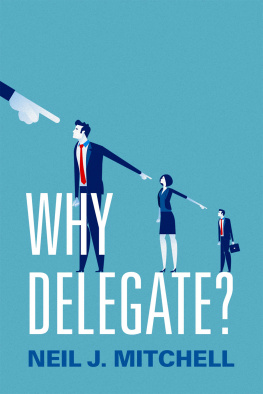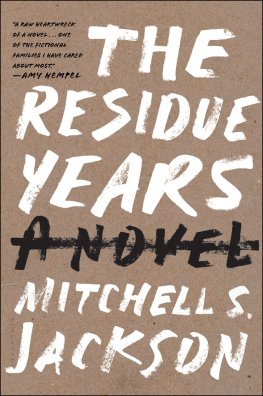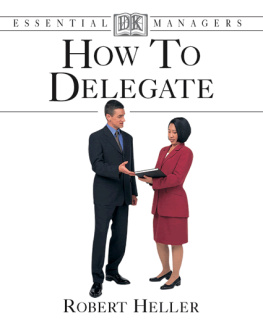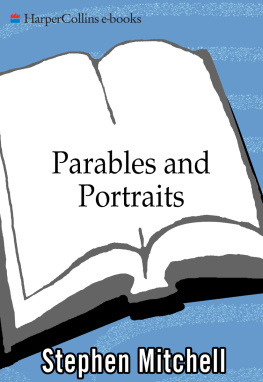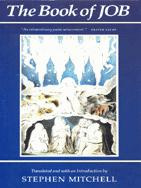Why Delegate?

Oxford University Press is a department of the University of Oxford. It furthers the Universitys objective of excellence in research, scholarship, and education by publishing worldwide. Oxford is a registered trade mark of Oxford University Press in the UK and certain other countries.
Published in the United States of America by Oxford University Press
198 Madison Avenue, New York, NY 10016, United States of America.
Oxford University Press 2021
All rights reserved. No part of this publication may be reproduced, stored in a retrieval system, or transmitted, in any form or by any means, without the prior permission in writing of Oxford University Press, or as expressly permitted by law, by license, or under terms agreed with the appropriate reproduction rights organization. Inquiries concerning reproduction outside the scope of the above should be sent to the Rights Department, Oxford University Press, at the address above.
You must not circulate this work in any other form and you must impose this same condition on any acquirer.
Library of Congress Cataloging-in-Publication Data
Names: Mitchell, Neil J. (Neil James), 1953 author.
Title: Why delegate? / Neil J. Mitchell.
Description: New York, NY : Oxford University Press, [2021] |
Includes bibliographical references and index.
Identifiers: LCCN 2020048320 (print) | LCCN 2020048321 (ebook) |
ISBN 9780190904197 (hardback) | ISBN 9780190904203 (paperback) |
ISBN 9780190904227 (epub)
Subjects: LCSH: Delegation of authority.
Classification: LCC HD50 .M58 2021 (print) | LCC HD50 (ebook) |
DDC 658.4/02dc23
LC record available at https://lccn.loc.gov/2020048320
LC ebook record available at https://lccn.loc.gov/2020048321
DOI: 10.1093/oso/9780190904197.001.0001
For Rene
Contents
Getting someone else to do something for you is not easy, as I describe at some length in this book. But doing things on ones own is not easy either. Beyond building on the work of economists and political scientists in developing the arguments and illustrations in this book, I have had all sorts of help from coauthors, colleagues, and students. I began thinking about delegation issues in researching violations of human rights and sorting out the motives of the leaders and the led. Some of what is here and notably the opportunism of the principal in delegating or tolerating the wrongdoing of the agent was initially explored in various chapters. Thanks in particular to Rod Abouharb, Kristin Bakke, Zeynep Bulutgil, Kate Cronin-Furman, Niheer Disandi, Sam Erkiletian, Thomas Gift, Jennifer Hodge, Andreas Juon, Nils Metternich, Jon Monten, Dominic Perera, Kit Rickard, Tatjana Stankovic, Katerina Tertytchnaya, Manuel Vogt, and Sigrid Weber. Thanks also to Tom Dannenbaum, now of the Fletcher School, for his comments on my treatment of war crimes. Some of the examples used in the book have been tried out in the classroom with UCL students. A special thanks goes to Eric Fair, who graciously agreed to speak with me about his experience as an American interrogator in Iraq. For suggesting this project, for a newfound interest in the National Football League, and for such thoughtful advice on how to structure the book, thanks to David Pervin and to Macey Fairchild of Oxford University Press and to my current editor, James Cook, for seeking out such useful reviews and for his ongoing encouragement. Many thanks to the anonymous reviewers who challenged me to firm up the arguments and the contribution. Rene Danziger encouraged me to take on the project and has seen and commented on multiple drafts. I am lucky to have her insights and most of all her love. Finally, thanks to my children, Colin and Kate, and sisters, Alison and Laura, for their love and support.
Why Delegate?
In March 2010 in the Bronx, Sharif Stinson got a ticket for trespassing and obscene language. It triggered a very expensive class action lawsuit. His lawyer said there was no crime. Foul language, he noted, was not unfamiliar to New Yorkers. Stinsons aunt had given her permission for him to be in the building, and the paperwork left the obscenity unspecified. The court found the summons lacked legal justification.
Sharif Stinson was one of many New Yorkers to receive tickets for disorderly conduct, drinking and urinating in public from police officers who, on their part, neglected the legal niceties. It cost the City tens of millions of dollars to settle the class action lawsuit. According to the lawsuit, the officers reward structure was outcome-based.

